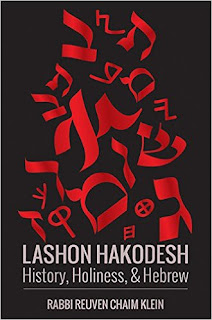Aruch Hashulchan in English
Aruch Hashulchan in English
Orach Chaim Chapters 242-292
Edited by Rabbi Ilan Segal
Translated by Rabbis: Michael Broyde, Ilan Segal, Mordechai Torczyner
Urim Publications / 520 pp
I am
completely blown away by the English Aruch HaShulchan that was just published by Urim
Publications. This outstanding volume covers chapters 242-292 of Orach Chaim, the laws
of Shabbat. Specifically, these chapters primarily discuss preparing for the arrival of Shabbat,
Jewish/Non-Jews partnerships, preparing the stove/oven for Shabbat (shehiya, chazara, and
hatmanan), kiddush, the Shabbat meals, and more.
For those
less familiar, the Aruch Hashulchan is a code of law written by Rabbi Yechiel Michel Epstein (1829–1908). The Aruch Hashulchan is incredibly unique in
that before discussing the relevant halachot of each chapter, it first cited the relevant Talmudic passages and the view of the Rishonim. Most such Rishonim
are only accessible to the advanced student of halacha. With this English translation, the
world of the Rif, Rosh, Rambam, Ran, Ravan, Rabbeinu Chananel, and more, are
now at the fingertips of English speakers. Priceless!
I don’t know if it’s
just me, but it seems that the Aruch Hashulchan just doesn’t get the full
measure of attention or authority that it deserves. It often seems as if there
is a popularity contest between the Mishna Berura and the Aruch Hashulchan.
Although not
completely accurate, perhaps the state of affairs can be summarized as follows:
the “yeshivish” world follows the Mishna Berura almost exclusively. This is ostensibly due to the influence of Rabbi Ahron Kotler who enacted that his Lakewood yeshiva follow the Mishna Berura exclusively. On the other hand, much of the non-yeshivish world defers to the Aruch Hashulchan. This
is quite odd, actually, considering that the Aruch Hashulchan is a Lithuanian
work while the Mishna Berura is a Polish one!
The Aruch Hashulchan
is probably the most thorough and conveniently organized compilation of halacha
today. As mentioned, every halachic issue opens with a presentation
of the relevant scriptural and Talmudic sources. So too, unlike the Mishna
Berura’s text-based-tradition to deciding halacha, the Aruch Hashulchan tries
to determine the halacha based on Talmudic precedents and contemporary
practice…and often works hard to satisfy both. It’s not since the Rambam that
there has been a work of halacha that covers all of Jewish law like the Aruch
Hashulchan does.
So should we
follow the Mishna Berura or the Aruch Hashulchan?
Rabbi Yehuda Henkin in Bnei Banim 2:8, cites his grandfather, Rabbi Yosef Eliyahu
Henkin, as having ruled that the Aruch Hashulchan is the more definitive and
authoritative decisor of halacha. He offers a number of
reasons for this. One reason is because most of the Aruch Hashulchan was
written after the Mishna Berura. In fact, the Aruch Hashulchan often cites the
Mishna Berura before issuing his own rulings. Another reason is because it
covers the entire Shulchan Aruch while the Mishna Berura only covers the Orach
Chaim section. Finally, the Mishna
Berura was essentially written by a scholar while the Aruch Hashulchan was
written by a scholar who was also a practicing rabbi. As a practicing rabbi,
the author regularly interacted with the community and dealt with the problems
and issues that they faced. He had more hands-on experience in dealing with
halachic dilemmas. Indeed, Rabbi Moshe Feinstein is
reported to have said that the Aruch Hashulchan takes precedence over the
Mishna Berura for this reason alone.
This new Urim English edition of the Aruch Hashulchan is an absolutely vital addition to the collection of any Anglo student of Halacha. Both the Hebrew and English is crisp and clear, attractive and engaging. Whether used as one’s primary study of halacha or as a review for those more fluent in halachic texts, I have no doubt that one’s retention and understanding of the Aruch Hashulchan will be better then ever. Thank you to Urim Publisher R’ Tzvi Mauer for sending this volume! It’s simply outstanding...a real game changer in the world of English halacha. Hopefully it’s the first of many volumes.


